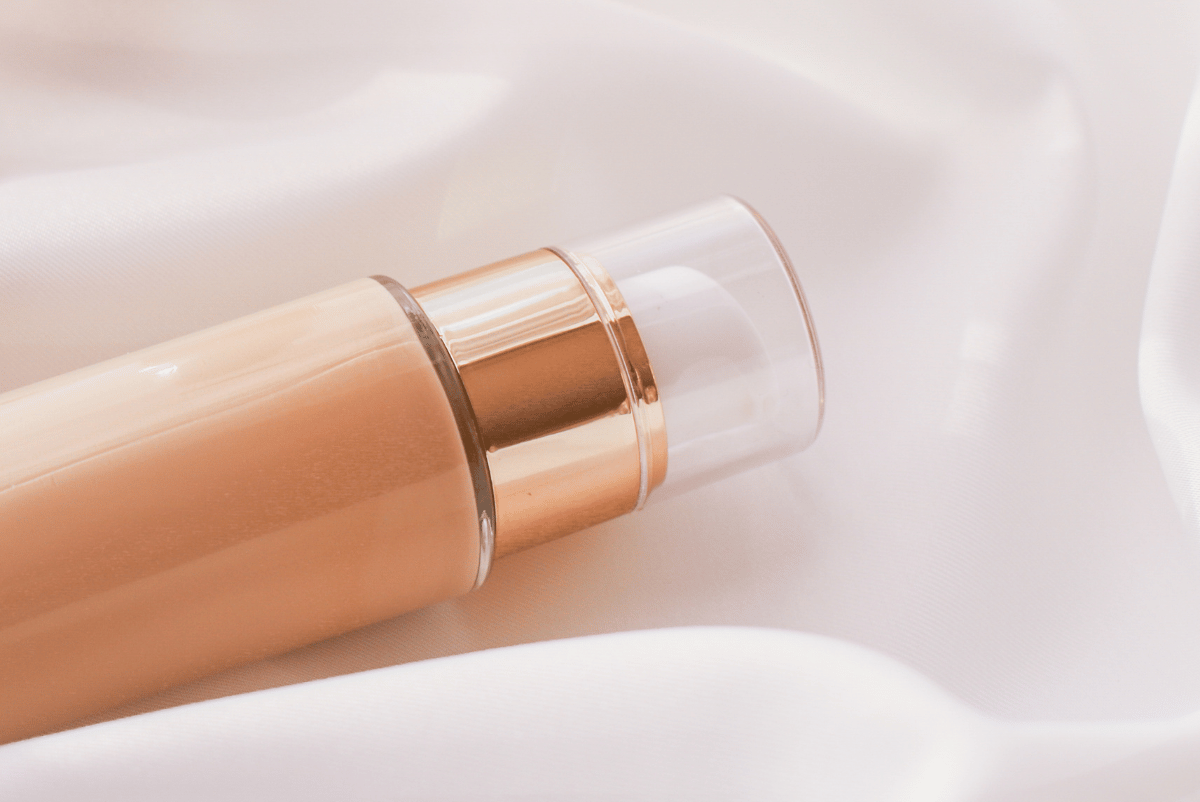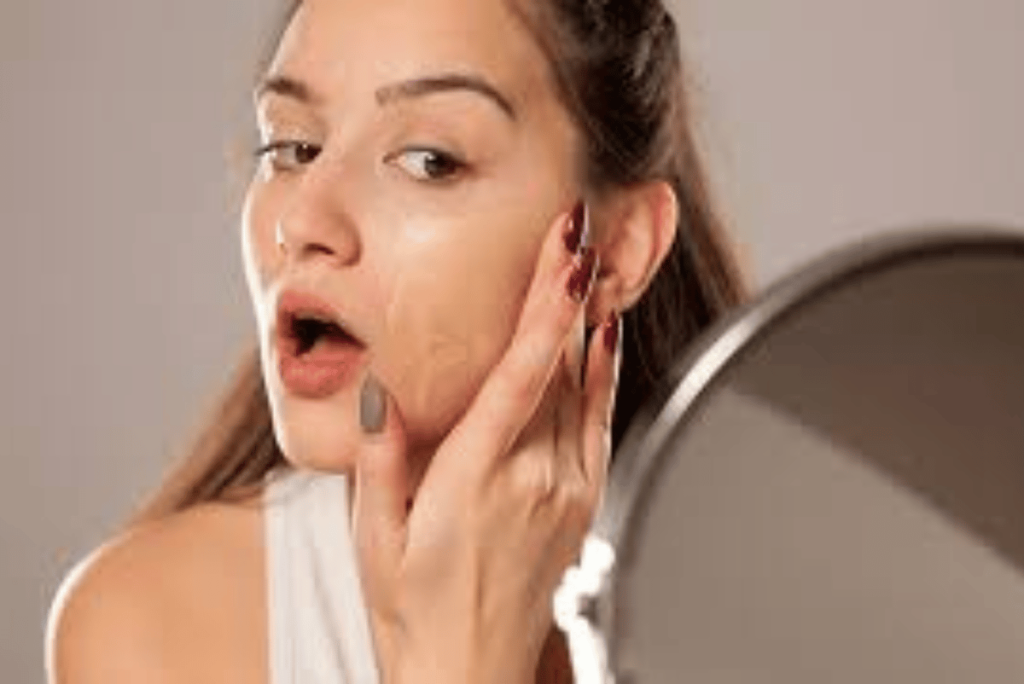Acne-prone skin can be a real challenge to manage, with breakouts and blemishes constantly lurking around the corner. On top of that, you still have to struggle to find the right products that won’t aggravate your skin further.
One product that comes to mind when dealing with acne-prone skin is primer. It acts as a base, creating a smooth canvas for makeup and helping it adhere better to the skin.
So, the question arises: is primer a friend or foe for acne-prone skin? If you’ve ever wondered what exactly a primer is and how it can impact your acne-prone skin, you’re about to find out.
Yes, a good primer for acne-prone skin can offer several advantages. It can create a smooth base that helps blur the appearance of blemishes and acne scars. Some primers also contain ingredients like salicylic acid or tea tree oil, which possess acne-fighting properties.
In this blog post, I will discuss everything from the basics of acne-prone skin potential benefits of using primer specifically tailored for acne-prone skin and how it can potentially revolutionize your skincare and makeup routine.
5 Top Primer For Acne-Prone Skin
Primer works well for Acne-prone skin, just like smooth skin. To make it easy to choose a primer for your acne-ridden skin, here are 6 best acne-prone skin primers for you;
1. Elizabeth mott thank me later face primer
This Primer is popular for individuals with acne-prone skin seeking a mattifying effect. This primer is specifically formulated to combat shine and control excess oil, making it an excellent option for those with oily or combination skin.
Its lightweight and breathable formula allows your skin to feel comfortable throughout the day, and its oil-free composition prevents clogged pores, reducing the likelihood of breakouts.
While this primer does not specifically contain acne-fighting ingredients, its oil-controlling and pore-blurring effects can indirectly contribute to managing acne-prone skin.
Controlling excess oil and providing a smoother canvas can help minimize the appearance of blemishes and create an overall improved complexion.
2. E.l.f. acne-fighting putty primer
The e.l.f. Acne Fighting Putty Primer is fantastic as it provides a smooth base for makeup and helps address acne concerns.
It contains salicylic acid, a well-known ingredient for its ability to exfoliate and unclog pores, helping to prevent the formation of acne.
The inclusion of salicylic acid in the primer provides an added benefit of addressing acne-related issues while preparing your skin for makeup application.
In addition to its acne-fighting and oil-controlling properties, the e.l.f. Acne Fighting Putty Primer also helps to blur the appearance of pores, fine lines, and imperfections.
This contributes to a more even complexion and a smoother canvas for your makeup, resulting in a flawless-looking finish.
3. TULA skincare filter primer luminizing & moisturizing primer
This primer is designed to offer a luminizing effect, adding a subtle glow to your complexion. It creates a radiant canvas for your makeup application, making your skin appear refreshed and naturally illuminated.
Hyaluronic acid, a key component in the formulation, helps to hydrate and plump the skin, giving it a smoother and more supple appearance.
This is particularly beneficial for individuals with acne-prone skin who may be experiencing dryness or dehydration due to acne treatments.
While this primer does not specifically target acne concerns, it provides a lightweight and breathable base that allows your skin to breathe while wearing makeup.
It helps to smooth out the skin’s texture, minimize the appearance of pores, and provide an even canvas for your foundation, concealer, and other makeup products.
4. SHILLS moisturizing invisible foundation primer for acne prone skin
This primer is specifically formulated to cater to acne-prone skin needs, offering moisturizing properties that help nourish and soothe the skin.
It contains hydrating ingredients that work to replenish moisture levels, addressing any dryness or dehydration commonly associated with acne treatments.
The invisible formula of this primer ensures that it blends seamlessly into the skin, creating a smooth and even surface. It is designed to be lightweight and non-greasy, allowing your skin to breathe comfortably throughout the day.
It won’t clog pores or contribute to further breakouts, making it suitable for acne-prone skin. Creating a nourished and hydrated base enhances the smoothness of your foundation, allowing it to glide on effortlessly and blend seamlessly.
This can result in a natural-looking finish and a more polished makeup look.
5. Lancôme la base pro makeup primer for face
The Lancôme La Base Pro Makeup Primer for Face is a luxurious option for individuals looking for a high-quality primer that provides a flawless base for their makeup.
This primer is crafted by Lancôme, a renowned beauty brand known for its exceptional products. One of the standout features of this primer is its ability to enhance the longevity of your makeup.
It acts as a magnet for your foundation and other cosmetics, helping them adhere better and stay in place throughout the day.
Moreover, the Lancôme La Base Pro Makeup Primer is oil-free and non-comedogenic, making it suitable for acne-prone skin. It won’t clog pores or contribute to breakouts, allowing your skin to breathe comfortably even with makeup on.
Benefits of Using Primer for Acne-Prone Skin

1. Smooths the skin’s texture
One of the significant benefits of using a primer for acne-prone skin is its ability to create a smoother texture.
Primers contain silicone-based ingredients that can fill in fine lines, wrinkles, and enlarged pores, giving your skin a more even and refined appearance. Primers help create a flawless canvas for your makeup application by smoothing the skin’s surface.
2. Blurs imperfections and acne scars
Acne-prone skin often bears the marks of past breakouts in the form of scars or hyperpigmentation. A primer can be a savior in minimizing the appearance of these imperfections.
By providing a layer of coverage, primers help to blur acne scars, discoloration, and uneven skin tone, giving you a more uniform complexion.
3. Prolongs makeup wear
One common struggle with acne-prone skin is keeping makeup in place throughout the day. Primers act as a foundation for your makeup, helping it adhere better and last longer.
By creating a barrier between your skin and cosmetics, primers can help prevent makeup from sliding off or becoming patchy, even in areas prone to excess oiliness.
4. Oil control
Excess sebum production is a common concern for individuals with acne-prone skin. Thankfully, some primers are specifically formulated to address this issue. Oil-controlling primers typically contain mattifying ingredients, such as kaolin clay or silica, which help absorb excess oil and keep shine at bay.
This can help reduce the need for constant touch-ups and maintain a more matte finish throughout the day.
5. Acne-fighting ingredients
Certain primers for acne-prone skin are enriched with acne-fighting ingredients like salicylic acid or tea tree oil. These ingredients possess antibacterial and anti-inflammatory properties, which can help control acne breakouts and soothe existing blemishes.
Using a primer with these active ingredients can contribute to the overall improvement of your skin’s condition.
6. Enhances makeup application
Applying makeup on acne-prone skin can be challenging, as uneven texture and blemishes can disrupt the application process. Primers provide a smooth base for foundation, concealer, and other makeup products, making it easier to apply them evenly. This can result in a more seamless and natural-looking makeup finish.
5 Key Factors to Consider When Choosing a Primer for Acne-Prone Skin
Determining the best primer for acne-prone skin can be subjective, as individual preferences and skin types can vary. However, there are a few key factors to consider when choosing a primer that works well for acne-prone skin:
1. Non-comedogenic formulas
Look for primers labeled as non-comedogenic, meaning they are formulated to not clog pores. These primers are less likely to aggravate acne or contribute to further breakouts.
2. Oil-Free or mattifying options
If you have oily or combination skin, consider oil-free or mattifying primers. These formulations help control excess oil and shine throughout the day, reducing the risk of makeup sliding off or clogging pores.
3. Lightweight and breathable
Opt for primers with lightweight textures that allow your skin to breathe. Heavy or occlusive formulas can potentially trap bacteria and oil, which may lead to breakouts. Lightweight primers are more comfortable to wear and less likely to contribute to congestion.
4. Acne-fighting ingredients
Some primers contain acne-fighting ingredients like salicylic acid, tea tree oil, or witch hazel. These ingredients can help control acne breakouts and soothe inflammation, providing added benefits for acne-prone skin.
5. Dermatologist-tested and recommended
Check for primers that have been dermatologist-tested and recommended for acne-prone skin. These products have undergone testing to ensure their compatibility with acne-prone skin and are less likely to cause adverse reactions.
Frequently Asked Questions
Should you use a primer if you have acne?
Yes, you can use a primer if you have acne. Using a primer can provide several benefits for individuals with acne-prone skin. Primers can create a smoother base for makeup, helping to blur the appearance of acne scars and uneven texture.
Conclusion
Finding the right primer for acne-prone skin can be a game-changer in your skincare and makeup routine. While there is no one-size-fits-all solution, understanding the benefits of using a primer tailored to your skin’s needs is crucial.
A suitable primer for acne-prone skin can provide a range of advantages. It can create a smooth and flawless base, blurring imperfections and acne scars.
Also, it can prolong the wear of your makeup, keeping it intact throughout the day and reducing the need for touch-ups.














